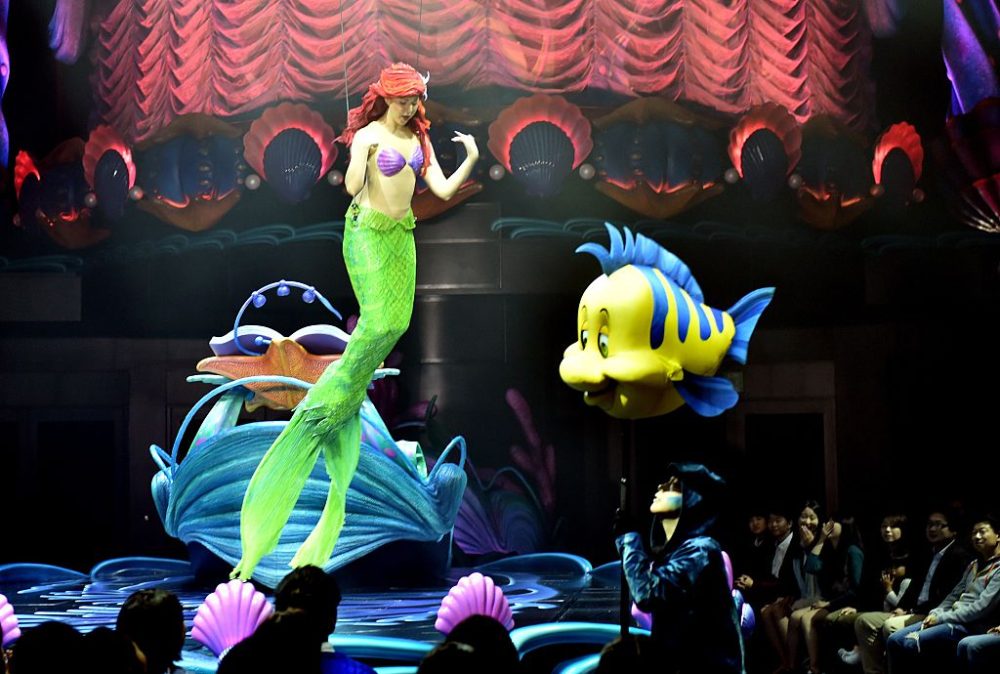The news that Pixar’s latest picture, the alien-contact family comedy Elio, has been an egregious flop at the American box office, grossing a mere $20.8 million on its opening weekend, has been greeted with both surprise and disappointment. Surprise, because Pixar has long been seen as the gold standard of contemporary animation, and disappointment, because its films are not supposed to flop.
No fewer than 13 of their pictures are in the 50 highest-grossing animated films of all time roster, and nine have won Best Animated Feature at the Oscars, most recently 2020’s Soul. And if there had been rumors that the company was in trouble, these were apparently put to bed by the enormous, epochal success of Inside Out 2 last summer, which grossed $1.7 billion at the box office.
But it looks distinctly unlikely that Elio will be making a fraction of that amount if current trends continue. Yet the reason for its failure is not simply that audiences couldn’t be bothered to show up, but that bad buzz, uncertain creative choices and the putrid scent of failure had attached itself to the picture long before it opened. Although it received decent reviews and good feedback from the audiences who could be bothered to see it, there was a sense that something had been stripped away in the process and that the picture had been retconned into something that it was not.
This has proven correct. A diligently sourced, clearly long-in-the-research Hollywood Reporter profile has dived behind the scenes of the film’s failure, and has come up with a clear, convincing reason for its problems. Its original director, Adrian Molina – who the piece describes as “openly gay,” an outdated term that should only continue to be used if other filmmakers can be called “secretly gay” or “openly straight” – had envisioned the film, about a lonely boy who is wrongly identified by an interplanetary organization as an all-powerful leader of Earth, as being a metaphor for coming to terms with youthful sexuality.
In the days that the picture was greenlit, deep in the Biden regime, this seemed exactly the kind of touchy-feely liberal filmmaking (its enemies would call it propaganda) that Hollywood would come up with. Unfortunately, middle America refused to take the concept to heart. Molina held a test screening of his version of the picture in the summer of 2023. It was greeted with polite disdain; the audience claimed to enjoy it, but none of them expressed any intention of seeing the finished film in a cinema upon its eventual release.
Stories of what then occurred vary, but it is clear that Coco co-director Molina was then elbowed out, although the official account is that he took a break. After being offered the chance to share his directorial credit with Madeline Sharafian, he declined and left the project altogether. Pixar, liberated from the responsibility of needing to make a queer-coded animated film, set to work re-editing and rethinking the picture, taking out anything that could be described as quirky or unusual in favor of creating the blandest version of cookie-cutter entertainment. A great number of those who had worked with Molina quit in protest, leaving the film in the far-from-unusual position of being torn in several different directions, and pleasing nobody in the process. It was delayed by a year, cost a rumored $200 million plus, and seems likely to become yet another cautionary Hollywood tale.
Still, it’s a fascinating insight into what contemporary thinking at Pixar is. While Inside Out 2 was indeed a massive hit, there have also been several misses over the past few years, including the more-serious-than-it-needed-to-be Lightyear and Elemental. It is also telling that the studio has never attempted to release a live-action picture; it was suggested that 2012’s John Carter, directed by Finding Nemo and Wall-E’s Andrew Stanton, was to have been released under that banner, but that hideously troubled production meant that Pixar sensibly disassociated themselves from that project. They may have wished that they’d done the same with Elio.
One egregious flop and a couple of underperformers does not mean that Pixar is in existential trouble. There is Toy Story 5 to look forward to next year, and the studio’s next release, Hoppers, about humans being able to understand animals, may or may not be successful, although early rumors that the film’s environmental message has been significantly toned down might not augur well for that picture. One disgruntled artist said “Unfortunately, when you have your whole film based around the importance of environmentalism, you can’t really walk back on that. That team struggled a lot to figure out ‘What do we even do with this note?’”
Under its current chief creative officer, Pete Docter, Pixar – which has long struggled with the death of its founder Steve Jobs and the public disgrace of its visionary CCO John Lasseter – the company has adopted a determinedly “don’t rock the boat” ethos, in an apparent desire not to offend or upset audiences. This might have been sound business practice, but as the failure of Elio has definitively shown, nobody is going to pay their $10 to see a film that will be on Disney+ in a few months anyway if the results aren’t worth it. It is impossible to say whether Molina’s original cut would have been a better picture, but it would certainly have been a more interesting one. Either way, it is unlikely to have been quite so egregious, and embarrassing, a flop.
Elio and the decline of Pixar
What explains the studio’s latest flop?

(Disney)
The news that Pixar’s latest picture, the alien-contact family comedy Elio, has been an egregious flop at the American box office, grossing a mere $20.8 million on its opening weekend, has been greeted with both surprise and disappointment. Surprise, because Pixar has long been seen as the gold standard of contemporary animation, and disappointment, because its films are not supposed to flop. No fewer than 13 of their pictures are in the 50 highest-grossing animated films of all time roster, and nine have won Best Animated Feature at the Oscars, most recently 2020’s Soul. And…

























Leave a Reply